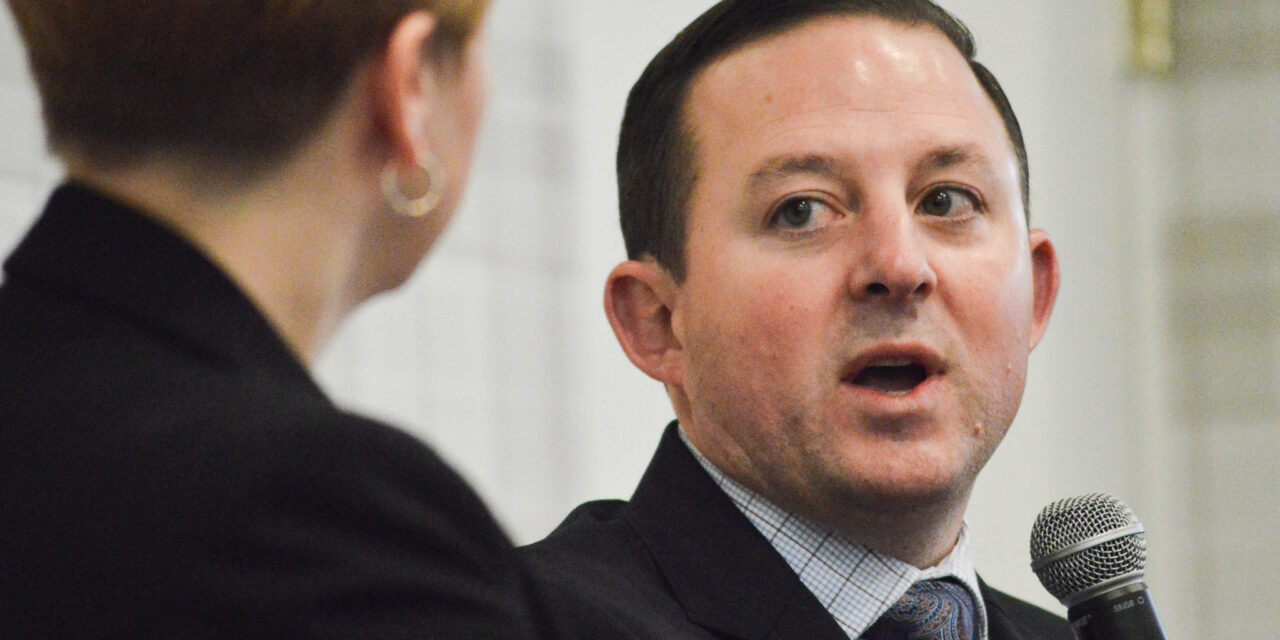By ADRIANA NAVARRO
ANNAPOLIS – State officials will wrestle over a new state budget in the coming weeks, no small task given the massive budget deficit they’re facing.
Gov. Wes Moore’s new budget proposal kicks off a season of debate, in which lawmakers will weigh the state’s needs against the cost of meeting them. Here are some of the key questions on their minds.
Are taxes going to go up?
Both Democratic and Republican lawmakers have stated they want to avoid raising taxes, but Maryland is facing a nearly $3 billion budget deficit.
That means the state is spending more money than it can bring in over a longer period, even when operating at peak performance.
The budget crisis has been brewing since long before the pandemic, according to Liz Farmer, a public finance reporter and co-host of the Municipal Finance Research Center’s Public Money Pod.
“Bottom line is, if it’s a structural deficit, it’s because you’re regularly not making what you need to make,” Farmer said. “So you need to do something that is reliably regular,” she said, and that involves “sales tax or income tax.”
One possible solution is a “millionaire tax,” and Gov. Wes Moore says he would like to see the state’s most prosperous residents “contribute a little more.”
But Republicans have consistently stood against taxing the wealthiest Marylanders, saying it would drive people out of the state.
Are transportation projects going to happen?
The Purple Line. The Red Line. The Key Bridge. All three projects are the subject of the budget conversation.
“Some of our biggest challenges in transportation are a result of the overruns from the Purple Line,” said Maryland Senate President Bill Ferguson, a Democrat representing Baltimore City. “We’re too far in. We have to finish the project at this point, but the overruns that have come from the project have crowded out spending for roads, bridges [and] other transit systems.”
The state may need to ask the incoming Trump Administration for federal funds, he said.
As for the Key Bridge, Ferguson said that the state was “in a great place” when it came to the bridge. That’s because 2024 ended with the full funding of the replacement bridge, according to Ferguson.
Are the schools going to get more money?
The Blueprint for Maryland’s Future has been funded through the end of the fiscal year 2027. That means changes that happen now won’t impact the current budget, Democrats say.
“That said, we should be making adjustments,” Ferguson said, suggesting that the state doesn’t have enough staff or space for the law’s pre-K requirements.
Republican lawmakers have been worried about the Blueprint’s cost from the beginning.
“We have to hire thousands and thousands of more teachers and spend tens, perhaps hundreds of millions of dollars and more money at the state and local level,” said House Minority Leader Jason Buckel, a Republican representing Allegany County.
Are people going to lose access to Medicaid?
Lawmakers on both sides of the aisle are suggesting changes to Maryland’s Medicaid in some form or another, though Ferguson rejects the idea of “throwing people off” of Medicaid or Medicare.
“That will not be the way that we approach this,” he said. “Are there adjustments to programs to make sure that we’re getting outcomes so that people are actually healthy and getting the services they need? Yes.”
Republican lawmakers argue Medicaid formulas shouldn’t be so broad that they include people making nearly six figures and supporting a family of three.
“Do you think that they should be on Medicaid if you have to pay for it out of your tax dollars with tax hikes?” Buckel asked.
But, said Farmer, when people aren’t insured, that ends up costing the system, too.
“That especially weighs more on counties,” she said, “because Maryland’s counties are the ones that shoulder a lot of the costs of healthcare in the state.”



Recent Comments